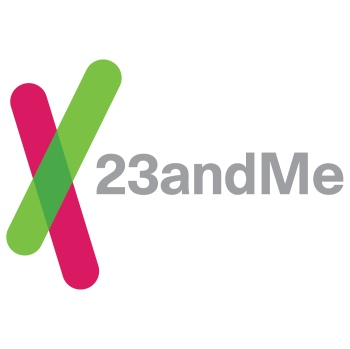23andMe Inc., the Google Inc.-backed DNA analysis company was told by U.S. regulators to halt sales of its main product because it’s being sold without “marketing clearance or approval.”
23andMe is led by Anne Wojcicki, who co-founded the company in 2006 and recently separated from her husband, Google co-founder Sergey Brin. Google has invested millions of dollars in the company in recent years.
The 23andMe $99 Saliva Collection Kit and Personal Genome Service, or PGS, tells users whether they carry a disease, are at risk of a disease and would respond to a drug. Most of the uses fall into the category of a medical device and require Food and Drug Administration approval, the agency told the Mountain View, California-based company in a Nov. 22 letter made public yesterday.
Alberto Gutierrez, director of the FDA’s Center for Devices and Radiological Health, said in a letter to the company made public on Monday that 23andMe had failed to address concerns raised on multiple occasions since the agency began working with it on compliance in July 2009.
“FDA is concerned about the public health consequences of inaccurate results from the PGS device,” the agency said today. “The main purpose of compliance with FDA’s regulatory requirements is to ensure that the tests work.”
“Assessments for drug responses carry the risks that patients relying on such tests may begin to self-manage their treatments through dose changes or even abandon certain therapies depending on the outcome of the assessment,” Gutierrez wrote.
The FDA said that while 23andMe had initiated new marketing campaigns that show how it plans to expand the uses of PGS, it had failed to provide information that the FDA requested multiple times. The FDA said it has had “more than 14 face-to-face and teleconference meetings, hundreds of email exchanges, and dozens of written communications” with 23andMe to discuss how to get the company to comply with its recommendations.
“However, even after these many interactions with 23andMe, we still do not have any assurance that the firm has analytically or clinically validated the PGS for its intended uses, which have expanded from the uses that the firm identified in its submissions,” Gutierrez wrote.
23andMe is one of many companies to offer at-home genetic testing; in September it reported that its database had reached 400,000 people. Scientists have raised questions about the accuracy of the tests, and in May 2011 a Dutch study claimed the tests were inaccurate and offered little to no benefit to consumers.
Blog Editor Note: I have had several emails regarding this story and it has nothing to do with the genetic genealogy test we take to study our family history. This is about the personalized health DNA test that 23andMe (and only 23andMe) has been advertising recently for $99. Scientist claim that these personalized health tests that screen thousands of genes for versions that influence disease are inaccurate and offer little, if any, benefit to consumers. This part of the DNA story has been out there for several years now. As I see things now not to worry about the genetic testing that we have taken as genealogists. This has NOTHING to do with that unless you did your genetic test at 23andMe and that would only be impacted if the company shuts down.
There is a very interesting Forbes article with background on all this online at http://www.forbes.com/sites/matthewherper/2013/11/25/23andstupid-is-23andme-self-destructing/
Finally, here is an update posted yesterday on the 23andMe blog:
An Update Regarding The FDA’s Letter to 23andMe
Published by Anne Wojcicki, co-owner of 23and Me.
It is absolutely critical that our consumers get high quality genetic data that they can trust. We have worked extensively with our lab partner to make sure that the results we return are accurate. We stand behind the data that we return to customers — but we recognize that the FDA needs to be convinced of the quality of our data as well.
In 2008 we began our dialogue with the FDA. The relationship with the FDA remains critically important to 23andMe.
In July 2012 23andMe submitted its first application for FDA clearance and followed on with another submission at the end of August. We received feedback on those submissions and acknowledge that we are behind schedule with our responses.
This is new territory for both for 23andMe and the FDA. This makes the regulatory process with the FDA important because the work we are doing with the agency will help lay the groundwork for what other companies in this new industry do in the future. It will also provide important reassurance to the public that the process and science behind the service meet the rigorous standards required by those entrusted with the public’s safety.
I am committed to making sure that 23andMe is a trusted consumer product. I believe that genetic information can lead to better decisions and healthier lives — a goal that all of us share.
We will provide updates as they become available.
